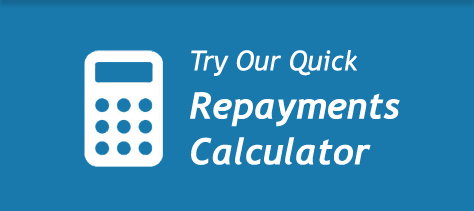
When it comes to buying a property, it’s not quite as simple as finding the place you want to buy, wandering in with a cheque or bag full of cash and signing a deed. There are a lot of legal requirements that have to be fulfilled and a lot of checks you should do on any property before you buy it.
The biggest problem is that there are quite a few costs that most people forget about when it comes to purchasing a property and find themselves a little blindsided by how quickly these costs can add up. To make sure that you don’t find yourself blindsided by these costs, we’ve put together a list of 5 costs and fees that most people overlook when buying a property.
1. Lender's Mortgage Insurance
Lender’s Mortgage Insurance (LMI) is a form of insurance that protects the lender if you default on your home loan. Whenever money is lent, there is always some form of risk to the lender, however small it might be, that they won’t get back the money that they paid out in the first place.
Your property is part of the security on the loan, but whether due to depreciation or additional costs on the loan the value of the property might not be enough to cover the balance of the loan. Lender’s Mortgage Insurance helps to reduce down the risk for lenders. This means that more people are able to secure loans with smaller deposits with the help of Lender’s Mortgage Insurance. However, having Lender’s Mortgage Insurance can also make any deposit payable increase. If your deposit is less than 20% of your property purchase price, then the minimum deposit payable will also have to factor in the cost of Lender’s Mortgage Insurance.
If you want to know more about Lender’s Mortgage Insurance and how it will affect your deposit, then you can contact our friendly property finance specialists for further information. To get an estimated calculation of how much Lender’s Mortgage Insurance will be payable, use a Lender’s Mortgage Insurance Calculator.
2. Conveyancing and legal fees
Conveyancing is the transfer process where the legal title of the property or land is transferred from one person to another.
In order to successfully navigate your way through the conveyancing process, you will need to hire a conveyancer who will prepare the legal documents for you, clarify them and even lodge them. They will also research the property and check its certificate of title (this involves checking for easements, the type of title associated with the property and anything else that might need to be addressed). The conveyancer will also ensure that your money is deposited in a trust account for you, calculate the adjustment of rates and taxes, settle the property on your behalf and represent your interest with the seller or with their property agent.
Because the process of buying property involves a lot of legal limitations, there are also legal fees that you may have to pay on top of conveyancing fees.
3. Government fees & stamp duty
Stamp duty is one expense that is easily forgotten and there isn’t a standard stamp duty that is applied to every property, it differs from state to state. Stamp duty is a fee applied by the governments in Australia when land or property is transferred between owners. If you need to find out what the stamp duty you will need to pay is, this handy stamp duty calculator will do all the number crunching for you
4. Pest and building inspections
Pest and building inspections costs typically run into the region of $500. Though this may seem like a lot, having any property inspected before you buy it can save you a lot of money in the long run, especially if there is a termite infestation that isn’t readily apparent from the outside.
Even if a property inspection shows that there are no pests and no major problems with the building, you are paying for peace of mind. If the report does show major structural problems with the property spending $500 can save you thousands in the long run.
Major problems aren’t the only thing to be identified in these inspection reports either. Any minor issues that are uncovered during the inspection can put you in a very strong bargaining position when it comes to the final price of a property.
5. Home/building insurance prior to settlement
When it comes to who is responsible for property insurance between signing the contract to the actual settlement, there is an awful lot of confusion. If you are in Queensland, the buyer is responsible for the insurance on the property from 5pm on the 1st business day after the seller signs the contract.
The provision to do with who is responsible for property insurance during the interim period is often found in the fine print on the contract. The fine print contains a lot of important information about the legal aspects of the contract and should always be read carefully before signing any form of contract.
Even if you are in a state where the seller is supposedly responsible for the property insurance prior to settlement, it is standard good practice for the buyer to take out an insurance policy for the property as soon as the seller has signed the contract. The type of insurance that is needed will depend on the type of property or land you are buying.
So how much deposit will I need to purchase a property?
When it comes to buying a house the general rule of thumb is to have a minimum deposit somewhere between 5% and 20% of the total purchase price of the property you are intending to buy. Don’t forget that this is on top of the other fees and costs that you may have to pay up front such as building inspection fees.
For example if you are buying a property that costs $200,000 and have to factor in an additional cost of $5,000 to cover Lender’s Mortgage Insurance, the minimum deposit with Lender’s Mortgage Insurance that you might expect to pay is $10,250 (5% - of total lend including LMI) or without Lender’s Mortgage Insurance you might expect to pay around $40,000 (20%).
What if I don't have a deposit or don't have as much as I will need?
If you don’t have a deposit or not as much as you need to make a minimum deposit payment then there are some other options open to you. To begin with you can get someone to act as a guarantor on the mortgage application such as your parents. These are generally known as family guarantees and to be eligible they will generally need to own their own home or have built up significant equity in their property.
You could also apply for a Deposit Protect Bond. This is something that allows you to purchase a property before you have the deposit ready. The Deposit Protect Bond is something that can be extremely useful if your money is tied up in investments for a set term or if you are eligible for the First Home Buyers Grant, something that can be used to help provide some of the necessary deposit.
If you are looking to save for a new home but are struggling to stick to a budget that lets you save what you need, you can use MoneySmart’s free Budget Planner to help get you into a comfortable savings pattern.
Whether you're looking to purchase your first property, your next property or refinance an existing property, our property finance specialists are available on 1300 CREDIT for a confidential, obligation-free discussion.
Tags: Credit One, Buying Property, Lender's Mortgage Insurance, Stamp Duty



